Pre-Conference Workshop
August 7-8, 2023
The Pre-Conference Workshop will be held from the 7th to the 8th of August 2023 before the conference proper. A traditional feature of the IACR Conference, it is aimed at providing those interested a chance to get an introduction or a refresher on the basic tenets of critical realism--from first-wave CR to dialectical CR and metaReality.
Pre-Conference Speakers
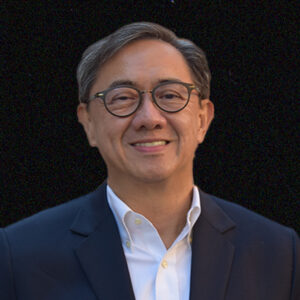
Johnny C. Go [In-Person]
THE FOUR PILLARS OF BASIC CRITICAL REALISM
This session will introduce the main themes discussed in Roy Bhaskar’s seminal work, A Realist Theory of Science. The four essential insights of basic critical realism rooted in Bhaskar’s transcendental analysis of sense perception and experimental activity will be explained–namely, intransitivity, stratification, open-system causality, and emergence. The critical realist view of the world that emerges from this insight will be discussed–particularly, critical realism’s critique of positivism, relativism, determinism, and reductionism.
Fr. Johnny C. Go, EdD is the Inaugural Dean of the newly established Gokongwei Brothers School of Education and Learning Design of the Ateneo de Manila University. He is also the Basic Education Coordinator for the Jesuit Asia Pacific Conference, where he conducts teacher training and leadership development workshops in the region. Johnny studied under Roy Bhaskar when he took his Doctor of Education program at the UCL Institute of Education (University of London). His doctoral thesis Religious Education from a Critical Realist Perspective: Sensus Fidei and Critical Thinking was published by Routledge in 2018. Johnny has a lecture series called “The Bite-Size Critical Realist” that discusses important critical realist concepts in an accessible manner.s
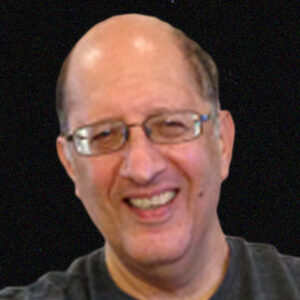
Douglas V. Porpora [In-Person]
FIRST-WAVE
CRITICAL REALISM
This presentation will tackle the application of critical realism in the social sciences, beginning with how critical realism differs from the positivist, hermeneutic, and post-structuralist approaches. Included in the presentation are the following topics: the “holy trinity of critical realism” (ontological realism, epistemic relativism, judgmental rationality), the transitive and intransitive dimensions, structure and agency, and the morphogenetic/morphostatic approach.
Dr. Douglas V. Porpora is a professor of sociology in the Department of Communication at Drexel University, Phildelphia USA. He is the current president of IACR and the author of many books and articles featuring critical realism. Besides philosophy of social science, he works on politics and political communication. Among his books are Reconstructing Sociology: The Critical Realist Approach (Cambridge 2015) and Post-Ethical Society: Abu Ghraib, the Iraq War and the Failure of the Secular (Chicago 2013).
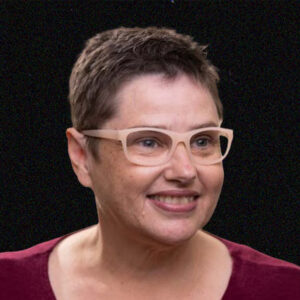
Catherine Hastings [In-Person]
DEVELOPING CRITICAL REALIST EMPIRICAL RESEARCH
This session will show how critical realism may be used in empirical social scientific research. It will illustrate the importance of an explicit alignment between the researchers’ assumptions about reality and knowledge on the one hand and their research methodology, and how critical realism’s conceptual toolbox can inform and improve one’s resarch project.
Dr. Catherine Hasting’s interdisciplinary research concentrates on understanding social justice and explaining the causes of inequality alongside developing and evaluating policy and program responses for social change. Recent focus areas include legal needs assessment, the causes of homelessness for families and older women, and international student financial and housing precarity. Catherine’s current research, funded by a Macquarie University Research Fellowship, investigates how, why and in what context types of legal needs develop for marginalized and disadvantaged populations in Australia. In addition to her academic work, Catherine has been an applied social research and evaluation consultant since 2010. The philosophy of critical realism informs her research. Her work aims to extend how social science research and complexity-informed evaluation methodologies may operationalise critical realism to deliver better transformative findings.
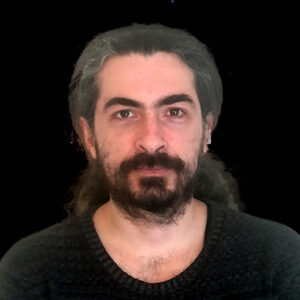
Onur Özmen [Online]
Introduction to DIALECTICAL CRITICAL REALISM
This introductory session, to be delivered online, presents Bhaskar’s Dialectical Critical Realism as a development of both critical realism and the dialectical tradition. DCR is interpreted as: (a) a way of understanding human being in a historical world; (b) a theory of ethics, and (c) a metacritique of philosophy. The four stages of DCR are discussed, as well as the following topics: absence and human being, four planar being, alethia and morality, among others.
Dr. Onur Özmen completed his PhD on the philosophy of critical realism and ethics at the Institute of Education, University College London in 2022 following his MA in Philosophy and Social Thought at Istanbul Bilgi University. He has recently been appointed as an Associate Editor of the Journal of Critical Realism.
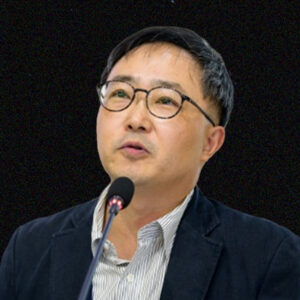
MinGyu Seo [In-Person]
THE BASIC CONCEPTS OF METAREALITY
This presentation on metaReality will begin with a brief overview of the development of critical realism up to metaReality. We will also discuss identity and self; transcendental identification, self-realization and freedom; the axial revolution and modernity; comparative religion and spirituality; how to unfold the enfolded (creativity, learning and education); unconditional love, peace and conflict resolution; ‘unthinking’ and the limits of thought, spontaneous right action and re-enchanting reality. Finally, we will discuss ‘being being’: the importance of extending the mode of non-duality within us.
Dr. MinGyu Seo is a philosophy professor at Konyang University, South Korea. He received his Ph.D. at the State University of New York at Buffalo, USA. His Ph.D. research was about finding Roy Bhaskar’s intellectual trajectory from critical realism to metaReality. His work had been published under the title of Reality and Self-Realization (Routledge, 2014), and a chapter of the book “Critical Realism and Spirituality” (Routledge, 2012). His recent publications in this subject are “An Anti-Anthropic Approach to Humanitas – A Realism on the Era of Post-Humanism” (The Korean Journal of General Education, 2023), “The Possibility of Anti-Anthropic Realism: Roy Bhaskar’s metaReality” (The Journal of Korean Culture and Convergence, 2020), and “The 21st Century European Realists: A Study on the Realism of Meillassoux, Ferraris, and Bhaskar” (Journal of Korean Study for Philosophy East-West, 2019).
Program
Here is the schedule for our two-day Pre-Conference Workshop.
Day 1, August 7 (MONDAY)
TIME | ACTIVITY |
|---|---|
08:00 | Morning Reception (Light Snacks with Coffee and Tea) |
09:00 | Introduction and Welcome Dr. Marlu C. Vilches, Vice President for Higher Education, Ateneo de Manila Session 1: THE FOUR PILLARS OF BASIC CRITICAL REALISM (Johnny Go) |
10:30 | Coffee and Tea |
11:00 | Session 2: FIRST-WAVE CRITICAL REALISM (Doug Porpora) |
12:30 | Lunch |
13:30 | Session 3: INTRODUCTION TO DIALECTICAL CRITICAL REALISM (Onur Özmen) [ONLINE] |
15:00 | Coffee and Tea |
15:30 | Session 4: Student Presentations |
17:00 | End of Pre-Conference Day One |
Day 2, August 8 (TUESDAY)
TIME | ACTIVITY |
|---|---|
08:00 | Morning Reception (Light Snacks with Coffee and Tea) |
09:00 | Session 5: INTRODUCTION TO METAREALITY (Seo MinGyu) |
10:30 | Coffee and Tea |
11:00 | Session 6: DEVELOPING CRITICAL REALIST EMPIRICAL RESEARCH (Catherine Hastings) |
12:30 | Lunch |
13:30 | Session 7: Student Presentations |
15:00 | Coffee and Tea |
15:30 | Session 8: Student Presentations |
17:00 | End of Pre-Conference Day Two |
